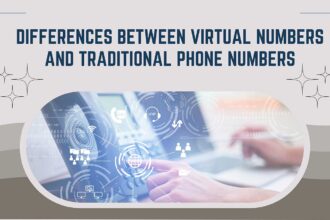Using the internet can be a great way to make life easier, from managing your finances to staying in contact with friends and family. However, it’s easy to forget that not everyone can use the internet as seamlessly as others. Countless impairments–visual, hearing, motor-related and cognitive–provide different challenges for those trying to navigate their way around online. This blog post will explore some of these impediments and learn how they impede access to the freedoms provided by the Internet. With a better understanding of these issues, you will be able to find ways to improve our access and create an inclusive online world.
Visual Impairments and how they affect internet usage
Visual impairments can present a whole host of challenges when navigating the internet. From the inability to read the small text to difficulty discerning color contrast, those with visual impairments often have to navigate a digital landscape that isn’t designed with their needs in mind. Screen readers and other assistive technologies exist to help bridge this gap, but they aren’t perfect solutions. As internet usage becomes increasingly integral to daily life, it’s essential to consider how those with visual impairments face additional barriers to accessing information and participating in online communities.
By prioritizing accessibility and designing with everyone in mind, businesses and institutions can help remove some obstacles and make the Internet a more inclusive place for all. You can visit Top 5 Accessibility online for a selection of available tools to make the internet a better place for visually impaired people. That way, everybody can enjoy the internet, regardless of their ability.
Audio impairments and how they impact online audio/video content
Online audio and video content have become increasingly prevalent in today’s digital age. However, many individuals face barriers when accessing this type of content due to audio impairments. These impairments can include hearing loss, tinnitus, and auditory processing disorders. The impact of these impairments on online audio/video content can be significant, as individuals may struggle to understand dialogue, discern different sounds, or experience discomfort or pain when specific frequencies are present. Content creators must consider these barriers and implement solutions such as closed-captioning, visual cues, or alternative audio formats. By doing so, they can ensure their content is accessible to a broader audience and promote inclusivity and accessibility online.
Mobility impairments and how they can limit the use of a computer mouse or keyboard
Using a computer mouse or keyboard can be a significant challenge for many individuals with mobility impairments. These disabilities can range from arthritis and tremors to paralysis and amputations, significantly limiting their ability to navigate a computer screen. For instance, a person with tremors may find it difficult to hold a mouse steadily, leading to frustrating and inaccurate navigation on the screen. Similarly, a person with paralysis may lack the physical strength to operate a keyboard, hindering their ability to type and communicate effectively. Fortunately, numerous assistive technologies are available to help individuals overcome these limitations, including voice recognition software, touchscreens, and adaptive switches that can be operated using various body parts. By utilizing these tools, everyone can have equal access to the digital world regardless of their physical ability.
Cognitive impairments and the difficulties in understanding online content
Navigating the online world can be challenging for individuals who have cognitive impairments. In a digital age where technology is crucial for communication, social interaction, and learning, understanding online content is becoming increasingly important. However, it can be an overwhelming and frustrating experience for those who struggle with cognitive processing. The vast amount of information presented online can be challenging to understand, leading to confusion and frustration. Website designers and content creators must consider this demographic when producing online content. By being mindful of simple design and clear communication, you can create a more inclusive internet that benefits everyone.









